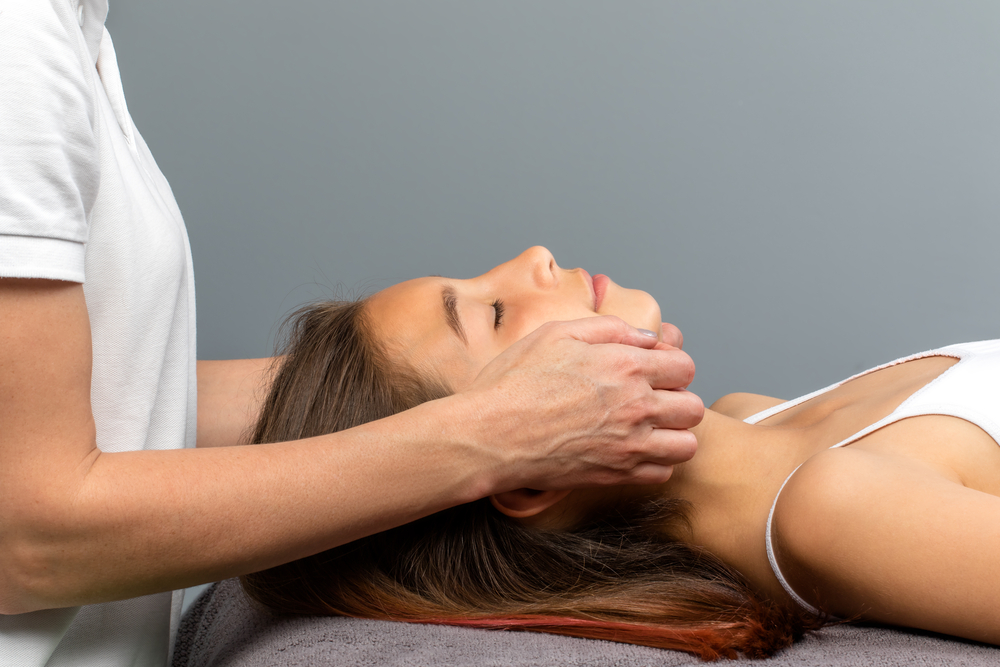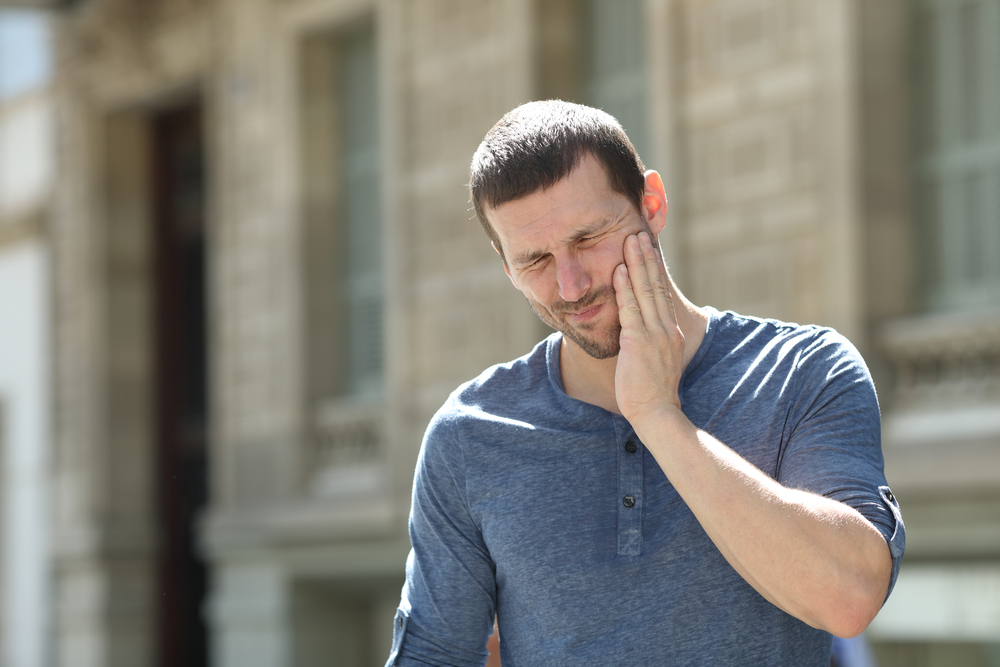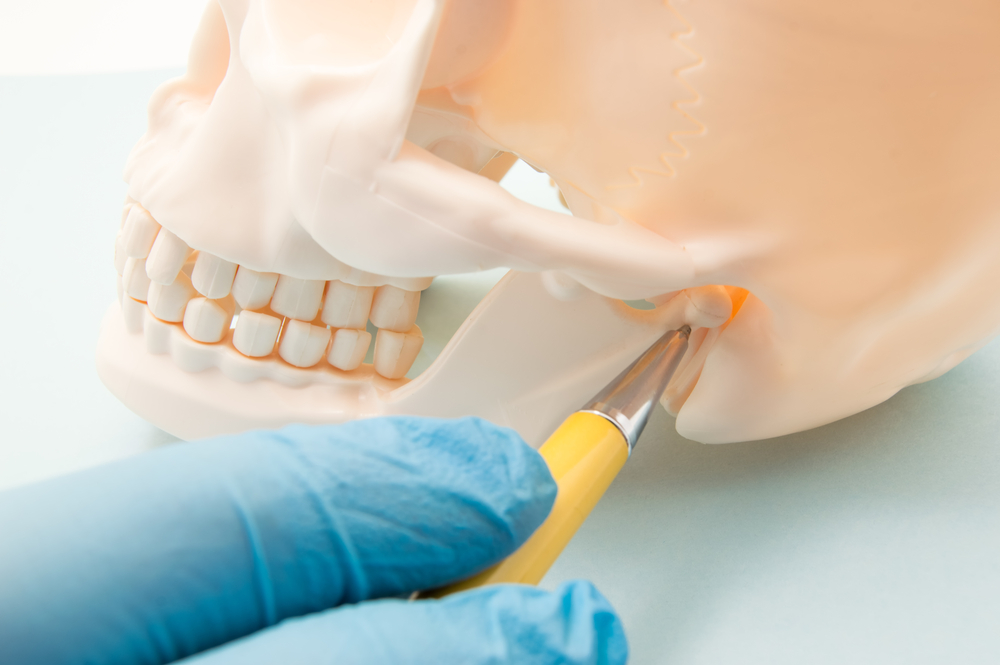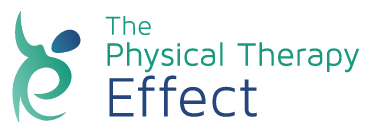Symptoms and Treatment of TMJ
Nov 7, 2022

It can be difficult to determine exactly what causes TMJ syndrome. For some, it’s genetics. For others, it’s arthritis. It can even be a jaw injury. Regardless of the cause, most people who suffer from TMJ disorders are able to manage the condition with nonsurgical treatments and care that can be self-managed. Although surgery can benefit some people, it’s typically considered a last resort.
What Is TMJ?
TMJ is an acronym for the temporomandibular joint itself, but the acronym is also often used for the joint disorder that can cause pain in the jaw joint and the muscles in the jaw that control the jaw’s movement. TMJ is also sometimes called a TMJ disorder, TMJ syndrome, or TMD, an acronym for temporomandibular disorder.

What Is the Temporomandibular Joint?
The TMJ, or temporomandibular joint, is the joint that connects the jaw to the skull. The TMJ is like a sliding hinge and there are two, one on each side of the head. The interacting bones within the joint are enclosed in cartilage. They’re also separated by a disk that absorbs shock as the jaw moves, which keeps the movement of the jaw smooth.
What Causes TMJ?
Pain from TMJ typically occurs when:
- The disk moves out of place
- The disk erodes
- The temporomandibular joint is damaged
- The cartilage in the joint is damaged
The causes of TMJ can vary and aren’t always clear. However, some common causes include:
- Arthritis, especially osteoarthritis and rheumatoid arthritis
- Injury to the jaw
- Chronic teeth grinding or clenching over a long period of time
- Some diseases that affect connective tissues
These factors don’t always cause TMJ but can increase a person’s risk of developing the disorder.

What Are the Symptoms of TMJ?
The symptoms of TMJ can include:
- Jaw pain or tenderness
- Pain in either or both of the temporomandibular joints
- Aching in the face
- Facial pain
- Painful chewing
- Difficulty chewing
- An ache around or in the ear
- Pain around or in the ear
- Difficulty opening or closing the mouth due to the joint locking
Another sign of TMJ is a clicking noise or a grating sound that occurs when opening and closing the mouth or while chewing. However, this is only a sign of TMJ if accompanied by other symptoms. If the clicking or grating sound is not accompanied by pain or any restriction in the free movement of the jaw, then no TMJ treatment is needed.
When Should I See a Doctor for TMJ?
You should seek medical attention to address your TMJ if you are experiencing consistent pain or aching in the jaw or if you’re unable to completely open or close your mouth. Any symptoms of TMJ that are limiting your ability to function normally should be mentioned to your doctor or your dentist, depending on the cause of the TMJ. That medical professional should then be able to diagnose TMJ and recommend a course of treatment.
How Is TMJ Diagnosed?
The dentist or the doctor will diagnose TMJ by discussing your symptoms with you and then examining your jaw. This will most likely involve examining the range of motion of the jaw, identifying areas that are painful or uncomfortable, and listening to and feeling your jaw as you open and close your mouth. Additionally, if a problem is suspected, the dentist or doctor can order x-rays, an MRI, or a CT scan to look more closely at your jaw.
Sometimes, a doctor will perform a TMJ arthroscopy, which involves inserting a small tube into the space around the joint. Then, they can place a small camera inside the tube to more closely view the temporomandibular joint.
How Is TMJ Treated?
For some people with TMJ, the symptoms may disappear on their own without treatment. However, if symptoms last, then you may be prescribed one or more of a number of different treatment options. The options include medicines as well as non-medicinal therapies, with surgeries as a last resort.
Medications
The following medications can help ease the symptoms of TMJ:
- Muscle relaxants
- Pain relievers
- Anti-inflammatory medications
- Tricyclic antidepressants
Tricyclic antidepressants can, in low doses, be used to manage pain and control teeth grinding.
Therapies
The therapies that can be used to treat TMJ are:
- Counseling
- Physical therapy
- Oral splints
- Mouthguards
Counseling can help people with TMJ determine the cause of the TMJ as well as understand what behaviors might trigger the pain. For example, if TMJ is caused by teeth clenching, then counseling can help the patient understand the reasons for the teeth clenching and work to stop the behavior causing the TMJ pain.

Physical therapy for TMJ involves exercises that strengthen and stretch out the jaw muscles. It can also include icing or heat as well as ultrasound to address the pain.
Surgeries
Surgery may be performed to treat TMJ, but it’s typically a last resort if other forms of treatment have failed. Possible surgeries for TMJ include:
- TMJ arthroscopy
- Modified condylotomy, which is done on the mandible rather than the joint itself
- Open-joint surgery, which addresses structural problems in the jaw that cause pain
Other Procedures
Other procedures that can help ease TMJ pain and aches include:
- Corticosteroid injections
- Botox injections
- Arthrocentesis
Arthrocentesis involves inserting small needles into the joint so that fluid can flow through the joint and wash away any debris or inflammatory byproducts that could be causing the joint pain.
Are you dealing with symptoms of TMJ?
Schedule a consultation with our Physical Therapists.
For informational purposes only.











